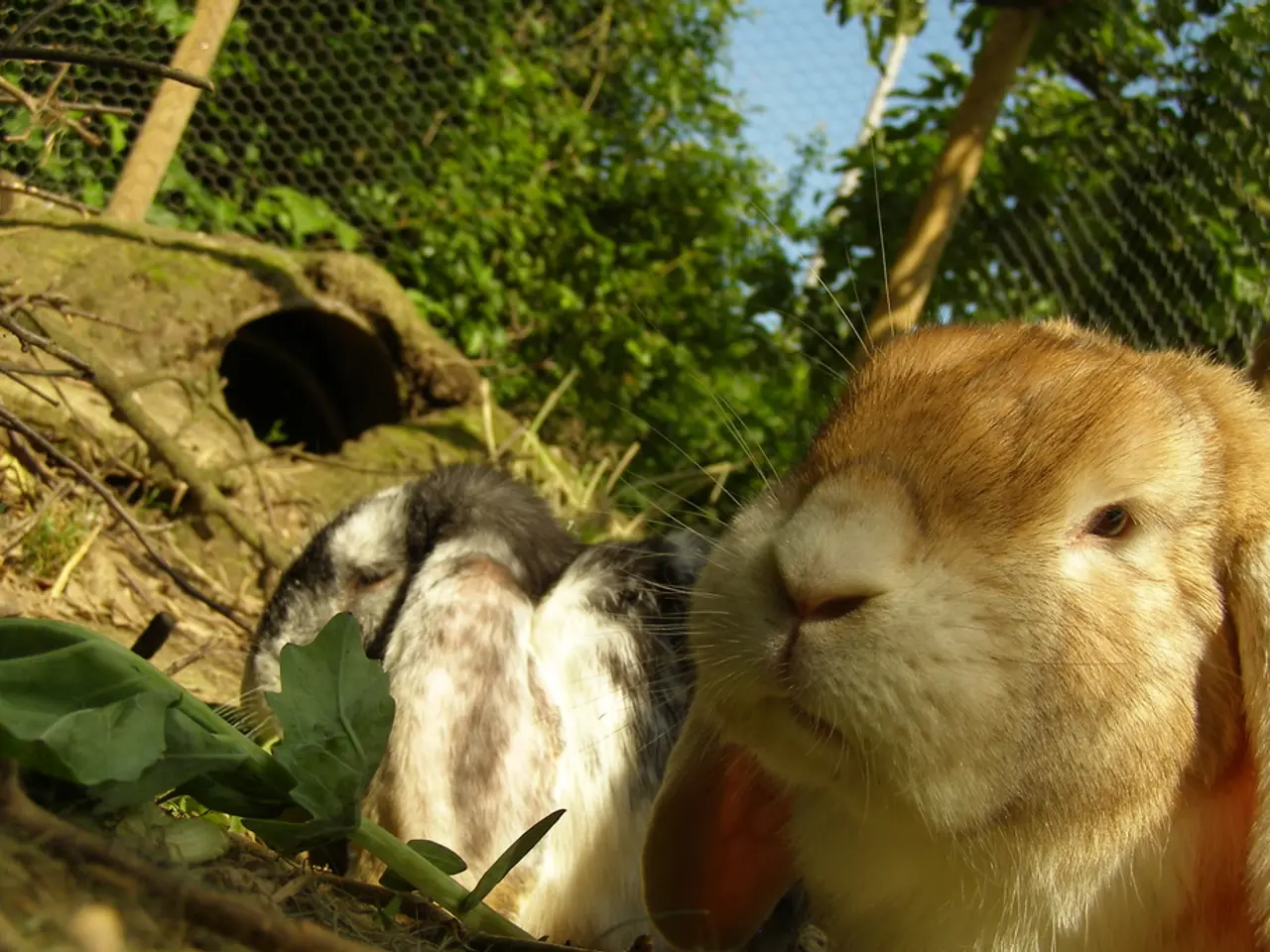Damage to your garden by ground squirrels? Pest control professionals vouch for this inexpensive trick (under $15) to prevent further destruction.
Ground squirrels, a common pest in urban and agricultural areas of the US, can cause significant damage to plants, infrastructure, and lawns. In this article, we'll explore effective methods to deter ground squirrels, focusing on the use of physical barriers such as wire mesh and covers.
Employing Wire Mesh Barriers
One of the most reliable long-term defenses against ground squirrel damage is the use of wire mesh barriers. Ideally, opt for a sturdy wire mesh like 1/4-inch hardware cloth. To be most effective, this mesh should be buried deeply to block tunneling. Experts recommend burying it at least 6 to 12 inches deep, with some favoring 12 inches for stronger tunneling prevention [1][2].
Proper Placement and Installation
To install the wire mesh, surround the entire perimeter of the garden bed or area to be protected with the mesh. Bury the mesh vertically into the soil to prevent squirrels from digging underneath. For extra security, the buried mesh can be bent outward at the bottom in an L-shape to further deter tunneling. The mesh should extend above ground around the protected area to prevent squirrels from climbing over. Use sturdy tools to dig a trench for burying the mesh; even small gaps or shallow burying can allow squirrels to tunnel underneath [2].
Protecting Seedlings and Fruiting Plants
In addition to wire mesh barriers, adding physical covers such as mesh domes or bird netting can protect seedlings and fruiting plants from above-ground damage by squirrels [1].
Additional Deterrents
Using these barriers consistently and ensuring they are well-maintained (no holes, gaps, or shallow burying) provides a robust defense against ground squirrel damage. Additional deterrents like strong scents or motion-activated sprinklers may complement the physical barriers but are less effective in blocking tunneling itself [1].
In summary, the most effective method to prevent ground squirrel damage with wire mesh involves:
- Using 1/4-inch hardware cloth or similar sturdy wire mesh.
- Installing the mesh around the protected area, extending above ground.
- Burying the mesh at least 6 to 12 inches deep to block digging and tunneling.
- Optionally bending buried mesh at the bottom to form a barrier against digging.
- Ensuring no gaps or holes remain for squirrels to exploit.
This approach physically blocks squirrels from entering protected spaces both above and below ground, minimizing their ability to chew roots, dig tunnels, or damage plants [1][2].
Other Preventive Measures
- Forgoing bird feeders can help, as seeds can attract squirrels. Place feeders away from low tree branches and use a baffle to keep squirrels away.
- Keeping squirrels away from bird feeders can be achieved by placing them away from low tree branches and using a baffle.
- Cleaning up fallen fruit or vegetables promptly can help deter ground squirrels.
- For extra precaution, consider using cloches to stop tree squirrels from contributing to damage.
- Another method to deter ground squirrels is by using fake predators, such as rubber snakes.
- It is possible to catch and trap ground squirrels using a humane trap, but it's important to check local regulations first.
In conclusion, a combination of physical barriers, proper placement, and regular maintenance can effectively prevent ground squirrel damage. By employing these methods, you can create a yard that is less desirable for ground squirrels, encouraging them to leave and not return.
Adopting a combined approach to deter ground squirrels can be highly effective in protecting your home-and-garden lifestyle. For instance, installing raised beds with 1/4-inch hardware cloth wire mesh, buried at least 6 to 12 inches deep, creates a physical barrier that the squirrels cannot penetrate. Furthermore, securing physical covers such as mesh domes or bird netting over vulnerable seedlings and fruiting plants in your home-and-garden setup can also help safeguard your gardening efforts from above-ground damage by squirrels.




